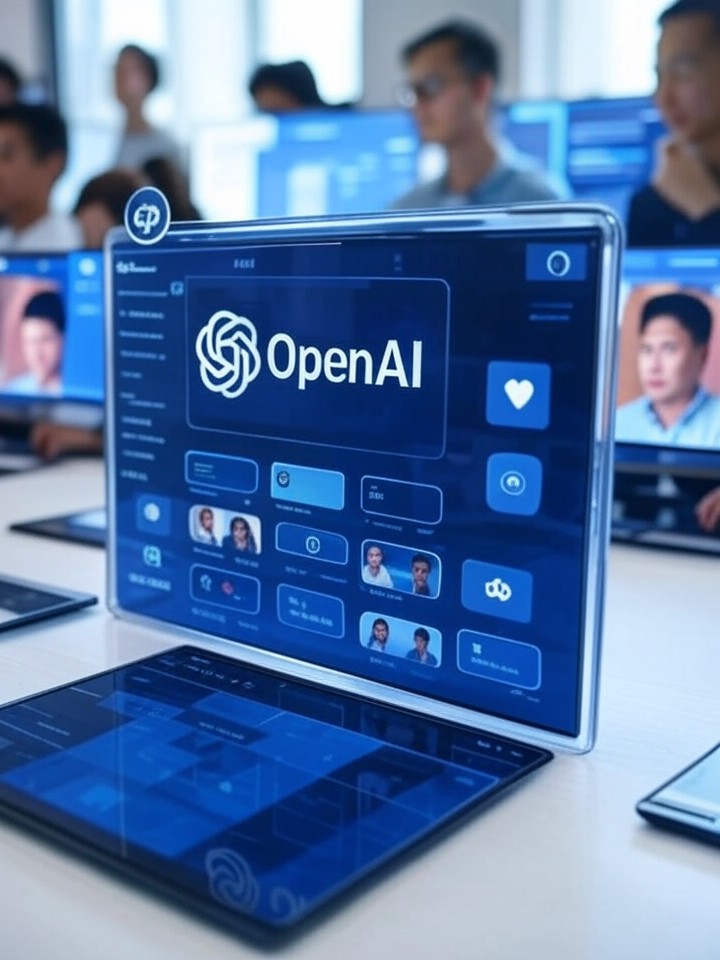The Role of Artificial Intelligence in Business Decision-Making
The Role of Artificial Intelligence in Business Decision-Making
Artificial intelligence (AI) is revolutionizing how businesses operate, innovate, and make informed decisions. Amid a rapidly changing technological landscape, leveraging AI in business decision-making is not just beneficial—it’s becoming essential. This blog post explores the pivotal role AI plays in business decision-making and how it is redefining success across various industries.
Understanding Artificial Intelligence in Business
Artificial intelligence in business encompasses a wide range of technologies, including machine learning, natural language processing, predictive analytics, and deep learning. These technologies empower businesses to automate processes, analyze vast quantities of data, gain insights, and make strategic decisions with increased accuracy and speed. By leveraging AI, businesses can improve efficiency, reduce errors, enhance customer experiences, and ultimately, increase profitability.
The Impact of AI on Business Decision-Making
Enhancing Data Analysis
One of AI’s most impactful roles in business decision-making is its ability to enhance data analysis. Traditional data analysis methods can be slow and susceptible to human error. AI algorithms, on the other hand, can process large datasets quickly and accurately. This efficiency allows businesses to identify trends, uncover patterns, and make data-driven decisions that are well-informed and strategic. For example, companies like Netflix use AI to analyze viewer preferences, enabling them to recommend personalized content, which enhances user satisfaction and retention.
Predictive Analytics for Strategic Decisions
Predictive analytics, a subset of AI, plays a critical role in forecasting future trends based on historical data. Businesses leverage predictive analytics to predict customer behavior, market trends, and potential risks. This foresight enables companies to make proactive decisions and minimize risks. For instance, in finance, AI-powered predictive analytics help institutions anticipate market shifts and adjust investment strategies accordingly, optimizing returns and minimizing losses.
Automating Routine Decisions
AI’s automation capabilities are transforming how routine business decisions are made. By automating repetitive tasks, businesses can allocate human resources to more strategic activities, thereby enhancing productivity. For example, chatbots powered by AI are increasingly used in customer service to handle basic inquiries, freeing up human agents to address more complex issues. This not only improves efficiency but also enhances the overall customer experience.
AI in Supply Chain Management
AI technologies are instrumental in optimizing supply chain management by providing real-time insights and enhancing decision-making processes. AI systems can accurately forecast demand, optimize inventory levels, and improve logistics operations. Companies like Amazon use AI-driven robotics and machine learning algorithms to streamline their supply chains, enhancing delivery speed, reducing costs, and increasing customer satisfaction.
Improving Marketing Strategies
In the realm of marketing, AI helps in designing more effective campaigns by analyzing consumer data to understand preferences and behaviors. This allows businesses to target their audience more accurately and personalize their marketing efforts. AI-driven tools like sentiment analysis enable brands to gauge public perception in real-time and adjust their strategies accordingly. This responsiveness ensures marketing efforts are not only cost-effective but also result in higher engagement and conversion rates.
Challenges and Considerations
While AI offers numerous benefits, businesses must also be aware of challenges and ethical considerations. Implementing AI requires significant investment in technology and talent, which may pose barriers for smaller enterprises. Additionally, data privacy concerns are paramount, as AI systems often rely on vast amounts of personal data for training and predictions. Companies must ensure they comply with regulations like GDPR to avoid legal repercussions and maintain customer trust.
Ethical AI and Bias
Another concern is the potential for bias in AI systems. If AI algorithms are trained on biased data, they can perpetuate and even amplify those biases in decision-making processes. Businesses must prioritize building ethical AI by using diverse datasets and implementing checks to detect and mitigate bias. This ensures AI operates fairly and equitably, aligning with corporate values and societal expectations.
Conclusion: Embracing AI for Better Business Decisions
Artificial intelligence is undeniably transforming business decision-making, offering enhanced efficiency, predictive insights, and automation capabilities that were previously unattainable. As industries continue to evolve, embracing AI will be crucial for staying competitive and achieving long-term success. However, businesses must navigate challenges carefully, ensuring ethical considerations are at the forefront of their AI strategies. By harnessing the power of AI responsibly, businesses can unlock unparalleled opportunities for growth and innovation in today’s dynamic market landscape.











